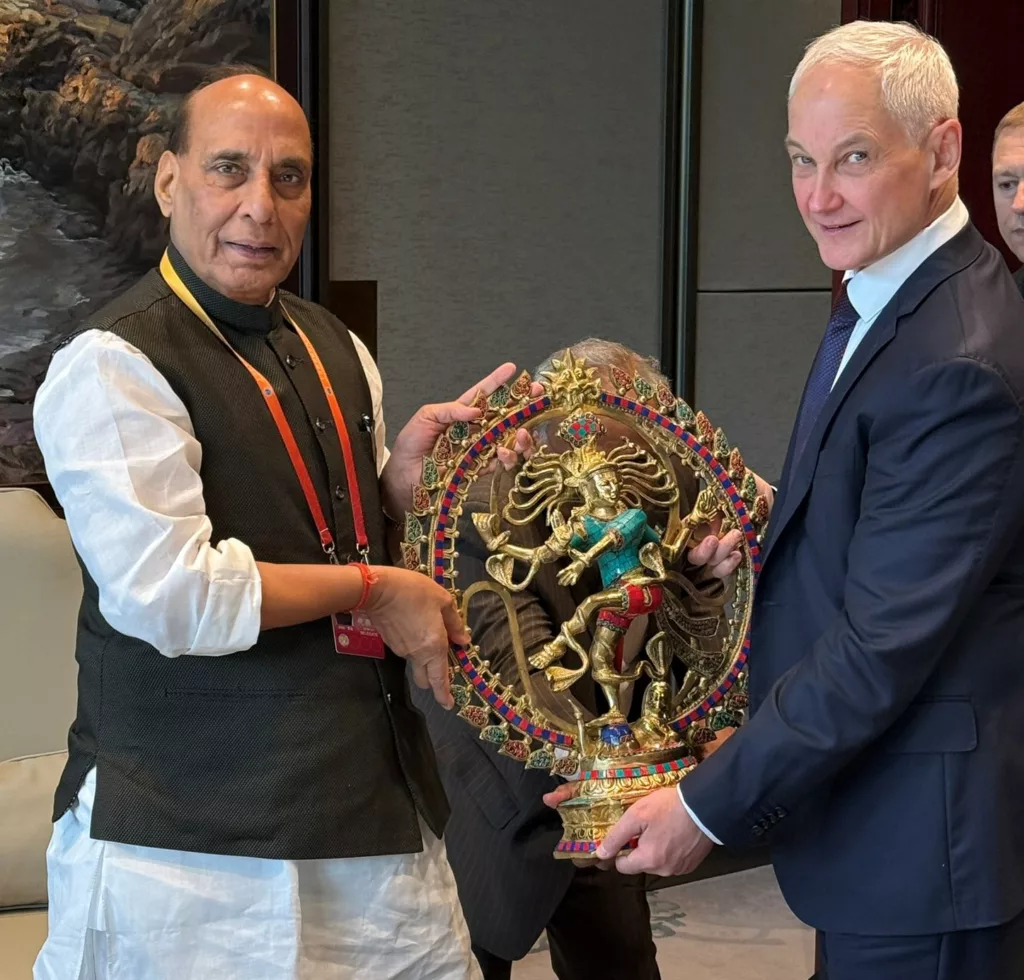
The perpetrators and sponsors of terrorism must be held accountable, said Indian Defence Minister Rajnath Singh at a conclave of the Shanghai Cooperation Organisation (SCO) today. He chose not to sign a communiqué by the bloc for not explicitly addressing India’s concerns over Pakistan-backed cross-border terrorism.
Rajnath Singh arrived in the Chinese port city of Qingdao on Wednesday to attend the SCO Defence Ministers’ Conclave.
The SCO operates under the framework of consensus, and Singh’s refusal to endorse the document resulted in the SCO defence ministers’ conclave ending without a joint communiqué, said people familiar with the matter.
There was no clear-cut approach to combating terrorism, including cross-border terrorist activities, they said.
In his address, Singh said that there should be “no double standards” in combating terrorism and urged the SCO member nations to condemn the menace with unity.
Besides India and China, the SCO includes Pakistan, Iran, Russia, Kazakhstan, Kyrgyzstan, Tajikistan, and Uzbekistan.
In an oblique reference to Pakistan, Singh said that some countries were using cross-border terrorism as an “instrument of policy” to provide shelter to terrorists. “The biggest challenges that we are facing in our region are related to peace, security and trust deficit,” he said. “And the root cause of these problems is increasing radicalisation, extremism and terrorism.”
Singh said that peace and prosperity could not co-exist with terrorism and proliferation of Weapons of Mass Destruction (WMDs) in the hands of non-state actors and terror groups.
“Dealing with these challenges requires decisive action, and we must unite in our fight against these evils for our collective safety and security,” he said.
The Indian defence minister said that those who sponsored, nurtured and utilised terrorism for their narrow and selfish ends must bear the consequences.
There should be no place for double standards in combating terrorism, he said, adding that the SCO should not hesitate to criticise nations indulging in double standards in combating the menace.
Singh also said that the pattern of the Pahalgam terror attack matched with Lashkar-e-Taiba’s previous terror attacks in India.
The defence minister said that India had launched Operation Sindoor in response to the heinous terror attack in Pahalgam, exercising its right to defend against terrorism and pre-empt as well as deter further cross-border attacks.
“During the Pahalgam terror attack, victims were shot after they were profiled on religious identity. The Resistance Front, a proxy of the UN-designated terror group Lashkar-e-Taiba (LeT) claimed responsibility for the attack,” he said. “The pattern of the Pahalgam attack matches with LeT’s previous terror attacks in India. India’s zero tolerance for terrorism was demonstrated through its actions,” he added.
“[The action] includes our right to defend ourselves against terrorism. We have shown that epicentres of terrorism are no longer safe and we will not hesitate to target them,” said the Indian minister.
Singh said that SCO members must condemn terrorism unequivocally as he reaffirmed India’s resolve to fight the menace in all its forms.
The defence minister also called for proactive steps to prevent the spread of radicalisation among the youth. “The joint statement of the Council of SCO Heads of State on ‘Countering Radicalisation leading to Terrorism, Separatism and Extremism’, issued during India’s chairmanship, symbolises our shared commitment,” he stated.
Singh stressed that the world currently faced an intricate web of challenges that ranged from transnational terrorism and cyberattacks to hybrid warfare.
These threats, he said, did not respect national boundaries and demanded a unified response rooted in transparency, mutual trust, and collaboration. The defence minister also noted that India had been consistent and steadfast in its policy in support of peace, security and stability in Afghanistan.


